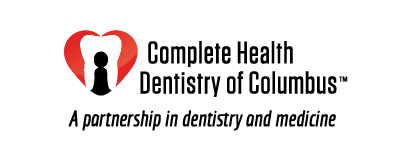Why Should I Talk to My Dentist About My Sleep?
- Barbara McClatchie, DDS

- Mar 17, 2022
- 2 min read
March is National Sleep Apnea Awareness Month. Obstructive Sleep Apnea is a medical condition that often has a dental solution. And a whole body dentist is the ideal place to start, in assessing and monitoring your risk for sleep apnea.
Obstructive Sleep Apnea (OSA) is a common chronic disorder that disrupts breathing during sleep. More than 25 million adults in the United States are believed to have moderate to severe sleep apnea. There are a number of oral manifestations of sleep apnea and upper airway resistance.
Bruxism
Scalloped or large tongue
Enlarged uvula
Worn, chipped, or cracked teeth
Narrow palate
Dry mouth
Quality sleep is part of preventative care
Obstructive Sleep Apnea is the most undiagnosed medical condition. 75% of severe cases are undiagnosed in this country. People with OSA temporarily stop or decrease their breathing repeatedly during sleep. This stopping or decrease in breathing is the result of repetitive partial or complete obstruction of the airway, caused by narrowing of the respiratory passages. These disruptions not only affect the quality of your sleep, but also put you at greater risk of developing other serious health issues such as: high blood pressure, diabetes, hormonal disorders, depression, stroke, asthma, acid reflux, weight gain, heart failure, and cognitive decline. Moderate to severe OSA, in concern to the effect on your cardiovascular system, is likened to smoking a pack of cigarettes a day!
Some symptoms of sleep apnea include:
Excessive daytime sleepiness
Loud snoring
Witnessed apneas
Restless sleep and awakenings
Nocturne
Unrefreshing sleep
Nocturnal/early morning chest pain
Sexual dysfunction
Morning headache
Cognitive problems
Depression
At Complete Health Dentistry of Columbus, we screen all our patients for sleep apnea, offer at-home screening, and if necessary work with a local sleep specialist to get screened and on a path to treatment. For mild or moderate sleep apnea, a mandibular advancement appliance created by Dr. McClatchie could be the solution, versus a CPAP machine.
CPAP is not the only sleep apnea solution
Continuous positive airway pressure (CPAP) has been the primary prescribed solution for sleep apnea for decades now. This method consists of wearing a mask over your nose and mouth while you sleep. The mask is connected to a machine that supplies gentle pressure that helps keep the airways open in order to improve breathing during sleep.
However, 50% of people who try CPAP discontinue use in the first year. CPAP is not the only solution. A complete health dentist can work with you to find the right solution.
Contact us today to schedule your at-home sleep screening. Take advantage of the easy, wireless, painless option!




Comments